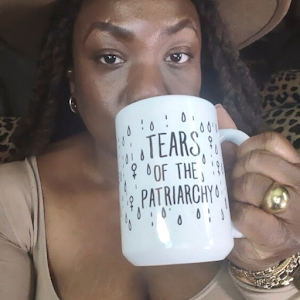The Importance of Looking Beyond the Words: "I Have A Dream"
Once a year, during Martin Luther King, Jr.'s day of commemoration and/or during the anniversary of his famous 1963 "I Have A Dream" speech, people are prompted to do one (or all) of a few things: fist pump about having an extended weekend before rolling over to sleep-in, hit up all of the MLK shopping deals at the mall, cull a cursory menu of food items that include fried chicken, collard greens, and other edibles ascribed to Black-Americans, or reduce Martin Luther King to nothing but the opening line, “I Have A Dream…”, gleaning the parts that best suit myopic platitudes to peddle post-racial propaganda and silence or they'll co-opt his words and misuse them to condescend to black people, in hopes that black folks will stop talking about racism and the daily microaggressions we have to navigate.
While Martin Luther King, Jr.'s dream and fight for equal rights seemed cut-and-dry to most, the man was far more complex and his message(s) way more multilateral than what we've been taught in school and what the mainstream media like to sell. Since immersing myself in the social media sphere, I've seen various people quoting MLK blurbs on my timelines, usually as a way to decontextualize conversations about race relations and structural inequality in the 21st century.
I'd like to challenge folks to dig a little deeper than and into King's famous speech (improvised on the spot), go beyond the erroneous myths surrounding his speech—which was largely forgotten and revisited after his assassination—and, learn things about his life and work we don't often hear or read about in mainstream media and school textbooks. Right before King was assassinated, he became more impassioned in his advocacy for racial equality and was more vocal about his growing displeasure with structural racism and the Vietnam War; much of that was reflected in later speeches as racial unrest and urban riots continued to unfold, seemingly at a fever pitch, following King’s speech. In fact, King lamented in May 1967, in a much more subdued revelation...
"I must confess that the dream I had that day has, at many points, turned into a nightmare. (…) I still have faith in the future, but I've had to analyze many things over the last few years and I would say, over the last few months. I've gone through a lot of soul-searching and agonizing moments and I’ve come to see that we have many more difficult days ahead, and some of the old optimism was a little superficial, and now it must be tempered with a solid realism…"
The continued fight against racism—overt, structural, and institutional—isn't as easy as some people would like to believe it is, particularly when you consider the still tenuous state of today's economic landscape and racial politics, specifically, how this past election year played out and how, in 2012, we’ve regressed and are once again contending with issues like voter suppression and intimidation in predominantly minority neighborhoods.
King’s work and source material require more depth of understanding, a rejection of the colorblind mythos—(because anybody truly interested in changing the world, can't do so effectively with blinders on, by refusing to recognize the humanity of others, and by being willfully obtuse)—and a genuine desire for everyone to succeed in this country. It also requires unpacking privilege (which folks seem loath to do), understanding how racism works, and eschewing the colloquial dictionary terms people with privilege love to defer to in discourses about race.
King’s work and source material require more depth of understanding, a rejection of the colorblind mythos—(because anybody truly interested in changing the world, can't do so effectively with blinders on, by refusing to recognize the humanity of others, and by being willfully obtuse)—and a genuine desire for everyone to succeed in this country. It also requires unpacking privilege (which folks seem loath to do), understanding how racism works, and eschewing the colloquial dictionary terms people with privilege love to defer to in discourses about race.
While Martin Luther King, Jr.'s dream encouraged people to co-exist peacefully, he also noted the racial/health/economic disparities though. As the following King quote from August 1967 observes: "When we view the negative experiences of life, the Negro has a double share. There are twice as many unemployed. The rate of infant mortality among Negroes is double that of whites.” This is a reality that many Black and brown people continue to grapple with today and it extends far beyond the boot-strap rhetoric people love to invoke.
So when quoting Martin Luther King, Jr., please do so with a better sense of understanding, nuance, and insight.









